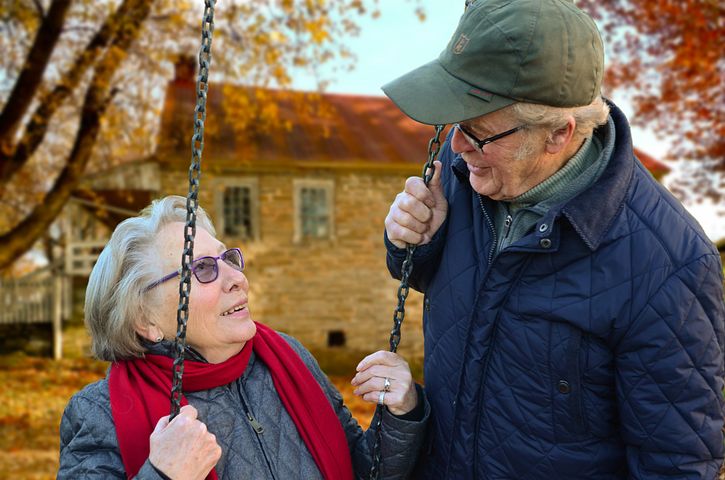Earlier this year, twelve experts were appointed to the City’s new Sustainability Advisory Committee. Chosen on the basis of their expertise in environmental management, social and community planning and financial analysis, the members of the committee were recruited to advise on the implementation of the City’s Sustainability Framework and Action Plan which focusses on the three key priority areas of sustainability – environmental, social and economic.
We caught up with three committee members – David Spear, Sanja Van Huet and Wayne Pales – on what motivated them to join the committee and what they see as the major sustainability challenges facing Geelong.
David’s motivation for joining the Sustainability Advisory Committee has been to ‘make an impact addressing climate change, the biggest challenge of our times, and to help define actions the Council can take in partnership with the community to accelerate change that will get us to net-zero faster’.
Sanja says that she was frustrated by what she saw as a one-way conversation and she joined the committee because she believes that ‘Geelong can be a leading region in forward thinking, proactivity and innovation but we are lagging behind’. She hopes to be part of a ‘reimagining of Geelong’.
Wayne is frightened by what is in store for his four children in coming decades and wants to play his part in helping Geelong’s efforts to fight climate change.
With the term ‘sustainability’ frequently being associated with the environment, we asked David, Sanja and Wayne to describe why the social and economic components of sustainability are also important.
‘To create lasting change, we must consider these three dimensions of sustainability together, like a three-legged stool, remove any single leg, and it will collapse,’ said Wayne who went on to say:
Social sustainability is, in my opinion, the hardest to define success and yet is the most important of all three. The central theme of social sustainability is providing a good quality of life for all, not just for the current generation but also for future generations. When we consider people’s priorities, it is to ensure their family’s security, health and general wellbeing. People are unlikely to prioritise how their choices impact the environment if they are unable to provide the basics for their loved ones.
Sanja put it more simply:
[O]ne influences the other. All factors impact all humans, all environments.
David says the interrelationship of the three aspects of sustainability come together in what he calls ‘good growth’ which looks beyond profit at any costs to ensuring products and services are ‘responsive to the moral and ethical challenges of our time’.
The rise of businesses like the Geelong Sustainability Group’s new social enterprise GreenLight are a great example of this; where profit, people and purpose come together to address climate change and create new sustainable industries and jobs, said David.
Asked about the key sustainability challenges and opportunities for Geelong, David mentions urban design and development, our systems of transport, consumerism, what we choose to eat, waste going to landfill and our greenhouse gas emissions profile.
Many of these sustainability challenges are either systemic and will require substantial disruption and adaptation or behavioural in nature, requiring communication, education and incentives to help facilitate rapid change.
Sanja is concerned that sustainability is not just the domain of the privileged:
‘I read somewhere that if you are wondering how to pay your bills and feed your family you are not going to spend your time sorting your rubbish,’ said Sanja.
Inherent poverty, lack of quality jobs for youth (jobs that allow for continual upskilling and ensure a fair take home pay), lack of vocational education opportunities and a lack of visible role modelling by leaders in the community are challenges to overcome.
Wayne talks about the collective effort which is required to face the region’s sustainability challenges:
Very little can be achieved by the Council alone. Success will come down to the many actions we, as residents, take every day. To many, climate change feels like too big a challenge. We all have lots on with work and family commitments and have more immediate priorities… everyone would love to ‘do their bit’ for the environment, but they feel they are too busy or cannot afford it. We have the opportunity to help the community make sustainable choices in everything they do, whether that be to consume less, choose more sustainable products, or even invest in renewable energy.
Commenting on the City’s work on an Economic Development Strategy and on creating vital communities in place of disadvantage, Wayne said that:
We need to do more to uplift the quality of living for those who don’t have the time or money to make the environment a priority and give them the support they need to make choices that I know most would love to make.
We caught up with David, Sanja and Wayne soon after the release of the latest report from the Intergovernmental Panel on Climate Change and asked them what their key takeaway from the report had been.
David said that ‘until recently, it was thought we have until 2035 to contain the worst effects of climate change by reaching net-zero greenhouse gas emissions: but this latest report really emphasises a greater sense of urgency than that.’
Sanja is forthright in her critique of all levels of government:
There has been hesitancy due to cost, lack of popularity and indecision. It is small steps by many that heads to change.
Wayne puts it quite simply: ‘We have no more time for inaction.’
We concluded our interviews with David, Sanja and Wayne by asking what roles we as individuals can play in living sustainably and whether individual actions can have an impact.
All three believe that individual action is important, with Wayne saying:
There is no plan B for our planet. Every one of us must take action now. For some, all they may be able to do is reduce food waste or even consider a more plant-based diet. Others may have the funds to buy an electric vehicle, solar panels, and battery storage. As your situation changes and you can do more, do more. If you are fortunate enough that you are in a position to help others make more sustainable choices, whether that be with your time or money, then do so. As a community, we can and must do everything to protect our planet for future generations.
In a community if everyone moves one brick you can build a house’ noted Sanja who encourages brave moves to call out poor practices, behaviours and policies and emphasises the importance of effective leadership to role model appropriate action.
David said it can be easy to become overwhelmed by the scale of the sustainability challenge but we all have a crucial role to play:
I think the first and best thing people can do is make a commitment to themselves and their family that they will take personal leadership and action to make a difference (where you can). This then leads to being conscious about role modelling responsible consumption and decision making to preference sustainability.
David suggested some practical steps could include:
- Use green electricity at home and work
- Eat a predominantly plant-based diet
- Compost food waste
- Use public transport, walk or ride a bike
- Shop local and preference ethically produced products and services, ideally with reusable or no packaging
- Engage with and support your community
Exercise to keep fit, well and healthy.
We can’t change systemic issues on our own, but collectively if we all start to make small local decisions and behave in a way that is more sustainable, that can become a very powerful force for change on a much larger scale – it starts with you, said David
David, Sanja and Wayne are members of the 12-person Sustainability Advisory Committee appointed by the City to support the delivery of its Sustainability Framework and Action Plan which highlights the key short, medium and long-term initiatives to address the current and future sustainability challenges and opportunities for the organisation, the community and the region.
Mayor Stephanie Asher said that the community has a variety of needs and expectations when it comes to addressing future challenges such as climate change, population growth, infrastructure development and social equity.
‘This committee will help bring those perspectives directly to Council,’ Mayor Asher said.
Interviewees
David Spear is working towards his vision of building an economy fit for the 21st Century through his roles as Head of Partnerships and Ecosystems at Runway HQ, founding Executive Officer of new social enterprise, GreenLight, and as a member of the Barwon South West Regional Development Australia Committee.
Sanja Van Huet is as an exploration geologist for a junior ASX/TSX listed mining company specialising in EV metals. She also lectures in environment and geography at ACU and is a researcher specialising in geohistorical climate change. Sanja is a committee member of Geelong Sustainability.
Wayne Pales is a senior technology leader and energy expert passionate about playing his part in creating a sustainable energy future that is accessible to all. As a bestselling author, a sought-after speaker, a lecturer and an award-winning green technology blogger, Wayne is passionate about helping people and business get the most value from renewable energy investments and ensuring renewable energy is accessible to all Geelong residents.
Latest sustainability activity at the City:
Our Community Plan 2021-2025 prioritises sustainable growth and environment for the City over the next four years, led by our Sustainability Framework and Action Plan.
The Draft Economic Development Plan 2021-2031 is open for community engagement until 31 August.
A Vital Communities Action Plan is under development to improve our coordination and planning to address disadvantage through greater social inclusion and increased workforce participation in the Geelong communities of greatest social and economic disadvantage.
Submissions on the Draft Climate Change Response Plan close on 25 August and the final plan is expected to be endorsed in October.




